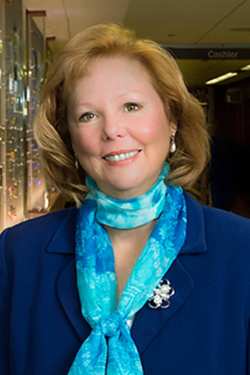
Meet Ruth. Ruth has led a full life for more than eight decades—working, raising a family and traveling. She could be your neighbor, your great-aunt or your mother.
But lately, Ruth’s health issues have started to catch up with her. She has diabetes, heart failure and painful arthritis in both knees. Ruth isn’t as steady as she used to be, and she’s starting to get forgetful too. Last year, she ended up in the ER after a fall. She spent weeks in a nursing facility for rehab, followed by home care. Plus, she was hospitalized once for pneumonia and twice for complications from heart failure.
Ruth will tell you she gets great healthcare. After all, she regularly sees a family doctor, a cardiologist, a rheumatologist, an endocrinologist, a gynecologist, an ophthalmologist and a dentist. Last year, she also saw an orthopedic surgeon, a pulmonologist and several hospitalists. Everyone involved in Ruth’s health is committed to giving her the best care possible.
Unfortunately, she can’t always remember which medicines she takes, so two different doctors ended up prescribing something for her pain. Ruth became overmedicated, which made her unsteady—resulting in the fall that sent her to the ER. Another time, one doctor ordered the same test another had just done two weeks earlier. Ruth didn’t say anything because she doesn’t like to question her doctors.
Ruth’s experience is not unusual. A 2010 report from Johns Hopkins shows that in a single year, an elderly patient with multiple health issues could average five hospital admissions, six weeks of skilled nursing care, five months of home care, 13 medications, 16 physicians and 19 clinic visits. Is it any wonder healthcare is expensive… and inefficient?
I believe we can do better, by our patients and for the long-term health of our community. That’s why everyone at Methodist, from the medical center to our physician practices, home care and hospice, is committed to coordinated care that’s better for the patient. It’s an approach that’s shared throughout Iowa Health System, which Methodist joined in 2011.
Under this new approach, we promote collaboration by removing the barriers to communication among physicians, hospitals, home care and other settings. With our electronic medical records and physician portal, Ruth’s doctors can all have access to the same, up-to-date information on her medications and test results, whether she sees them at their office, in the ER or in the hospital. We are also creating “medical homes,” where the primary care physician coordinates the patient’s care with specialists so everyone works together as a team.
The Methodist Care Transition Program helps heart failure patients like Ruth avoid hospitalization. A care transition coach helps patients take medication properly, see their doctor for follow-up visits and make lifestyle changes that keep them healthier. In its first year of operation, 91 percent of the patients using the program did not have to be readmitted to the hospital. And along with other Iowa Health System affiliates, we have launched Accountable Care Organizations (ACOs) to care for patient populations, keeping chronically ill patients healthier and reducing the rate of hospital readmissions.
By surrounding patients with coordinated care between the doctor’s office, the hospital and home, Methodist ensures every patient has access to the level of care they need, and that they are treated where it’s most convenient for them. Together with our partners throughout Iowa Health System, we are emphasizing prevention and collaboration, with tremendous potential to improve the health of our communities. iBi

